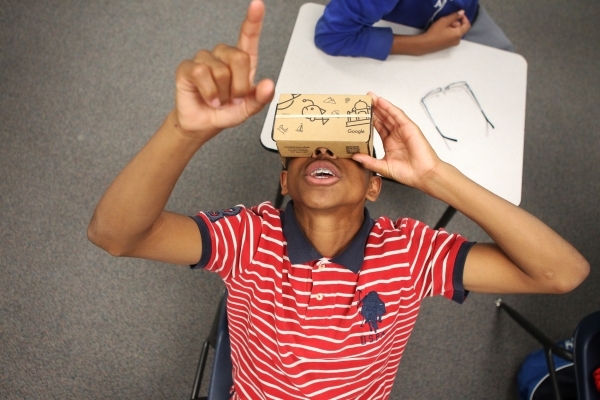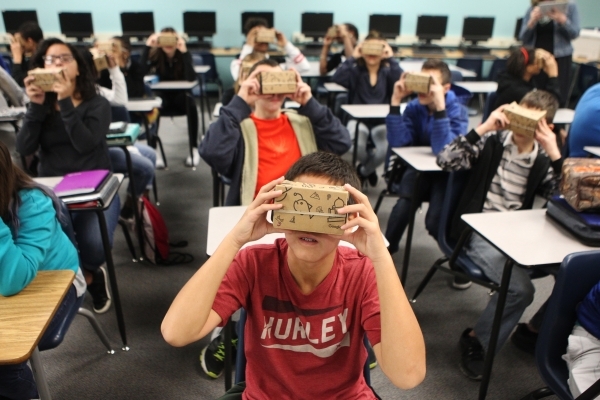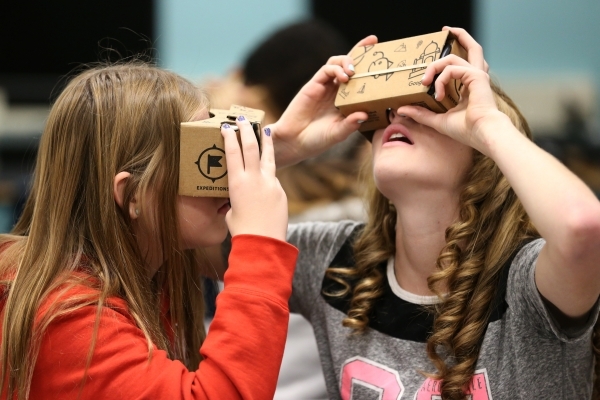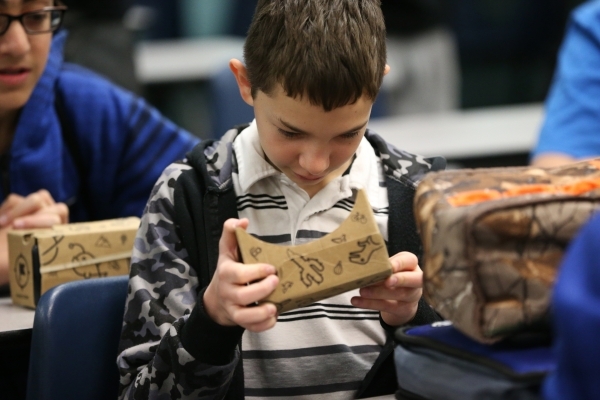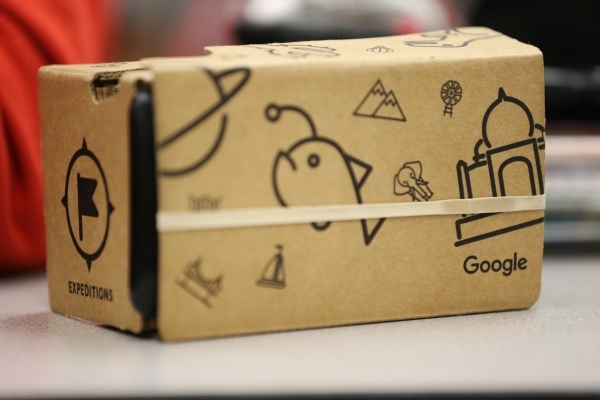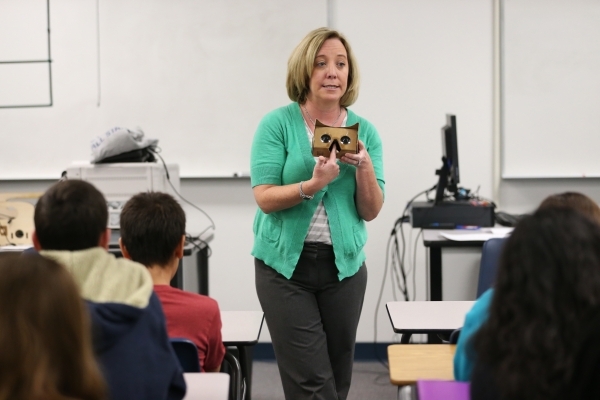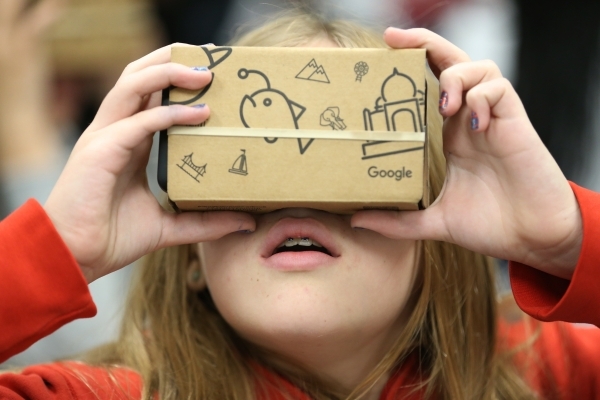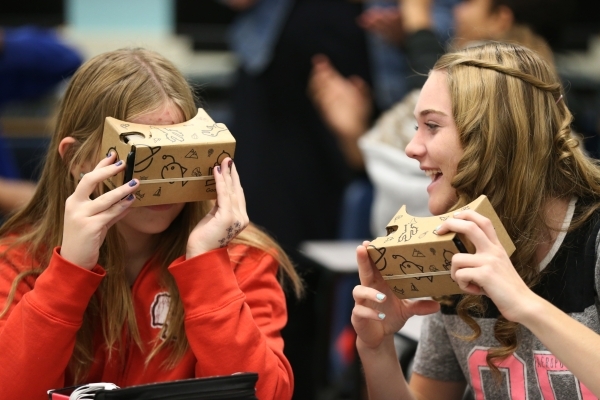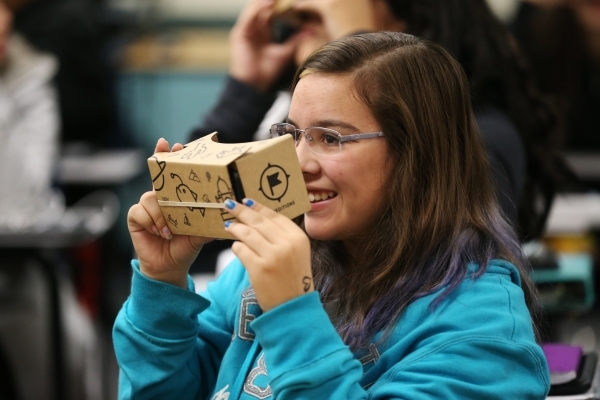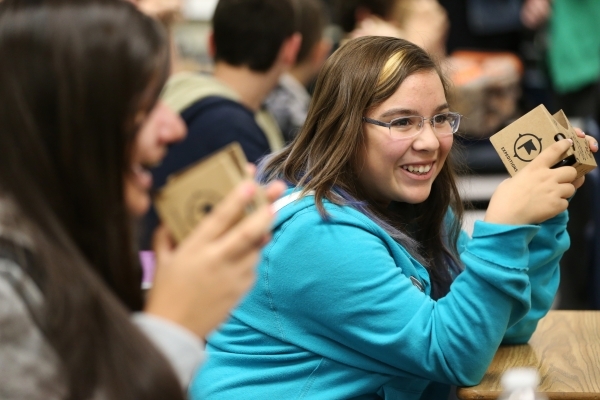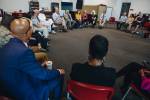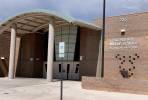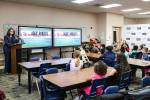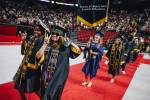Google takes valley students on virtual world tour
Without leaving their desks, about 1,500 students at Leavitt Middle School this week swam with fish on the Great Barrier Reef, preyed upon a praying mantis in the Galapagos Islands and climbed the peaks of Machu Picchu.
They accomplished this for a brief moment Thursday with cardboard-framed headsets pressed to their faces, as Principal Keith Wipperman guided them through virtual reality renderings of the world's most exotic destinations.
As part of an exclusive education campaign called Expeditions, tech giant Google selected the middle school campus near Cimarron and Craig roads to test-drive an unreleased program that lets teachers guide their students through 360-degree, interactive renderings of the moon, the ocean deeps and more.
"A lot of people in education think technology is a babysitting tool, but look how engaged they are," said Angie Manzanares, as her sixth-grade science class filled with "oohs" and "aahs" during a virtual visit to the earth's stratosphere. "That's key for me.
"Kids nowadays, their brains physically are wired differently, so it's not in their best interest to sit in a desk for 50 minutes and just read," she said. "This raises different levels of thinking and pushes (the students) to explore science in new ways."
Through an application process, Google extended its virtual reality demonstration, free of charge, to a short list of schools across the nation and globe. Principal Wipperman said he believed the Silicon Valley firm chose his campus for the early preview of the Expeditions program because of Leavitt's existing investment in technology.
The northwest valley school, where more than 40 percent of students are eligible for free and reduced-price lunch, already hosts an aerospace and drone program, allows engineering students to tinker with a 3-D printer and offers an iPad to every seventh- and eighth-grader.
With no extra funding, Wipperman also soon will purchase a 3-D projector that, paired with special goggles, will show students how to dissect human organs.
"Technology is a tool, just like a pencil is a tool," Wipperman said. "Part of our job — and with science in particular — is to get (students) excited in different careers."
Referring to the virtual reality headset, he added: "This could be the spark that convinces even one student to work for Google."
Contact Neal Morton at nmorton@reviewjournal.com or 702-383-0279. Find him on Twitter: @nealtmorton.



